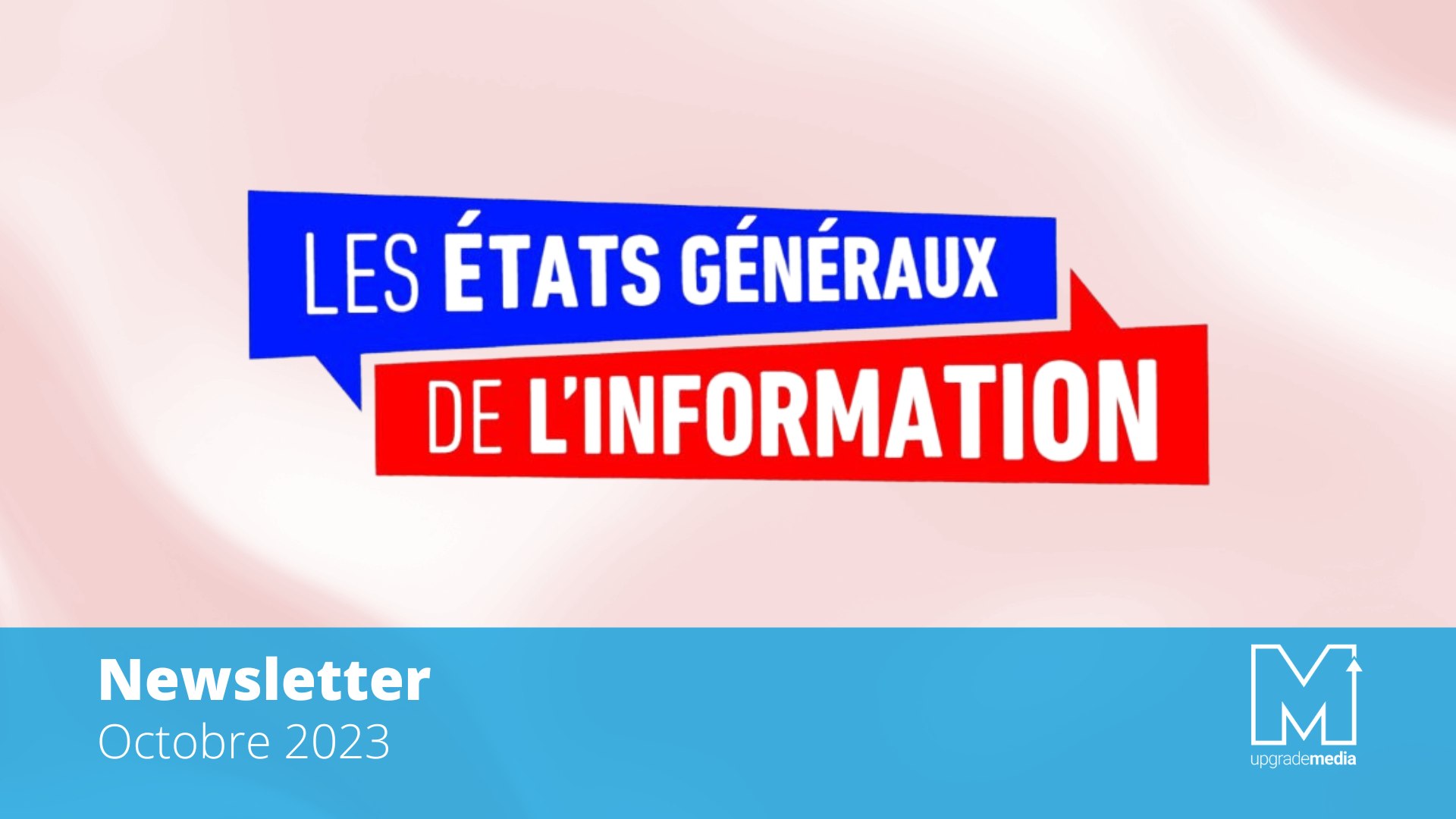Don’t you love it when the government stands up for the free press, and slaps down big tech in the process?
You are reading the Upgrade Media newsletter sent on 14 September 2023. Sign up now to receive future newsletters directly to your inbox or via LinkedIn.
When Emmanuel Macron promised the French media an États généraux in 2022 there was a general sense of ‘at last’. The idea was to fix the new ‘rules of the game’ in a digital era which has seen an explosion of disinformation, an erosion of the social role of traditional media, and an undermining of media revenues to the benefit of the big tech companies.
Could this be the new beginning that rights the ship and sets us back on course to more reliable information, properly funded news media, and a society in which those making money from information are required to ensure they do so responsibly?

There’s no doubt that these are noble goals, and at Upgrade Media we wholeheartedly want them to work, but there are some serious question marks over whether the State is really in a position to redress the state of media.
The EU already has a code of practice on fake news. It has done for five years and the latest round of reports is already out. While Meta has been keen to point to its expansion of third party fact checkers worldwide, there remains a problem. Fact checking is not stopping the tide of misinformation. For once Meta is not even the key villain, although only because a James Bond style supervillain is on the scene, with the EU making it very clear who is the worst candidate for fake news. There are fines, and lawsuits, but when the culprit is also one of the richest men in the world these can be dismissed as part of the cost of doing business.
Moves like the États généraux throw into sharp focus the issue of whether governments are in a position to set the new rules when they may not be holding the best cards.
One of the recurring arguments, repeated in the États généraux is that social media should pay traditional media for their news. In 2021 the Australian government ruled that into law and Meta promptly stopped publishing news rather than pay up. Yet not long after Meta was seen to crumble and agreed revenue sharing deals. That has become increasingly relevant given the battle royale now going on between Meta and Canada. When Trudeau first gave the green light to compel Meta to pay for news content the immediate response was that it was Canada calling Meta’s bluff. As the weeks went by, and Meta simply pulled all news content, including during the period of devastating wildfires, that view became reversed with the feeling that Meta was the one calling the bluff. Some are already pointing out that the losers in this game are traditional media. This isn’t just likely to be a problem for the Anglosphere either. Wired reports that Meta may simply be turning away from news altogether.
It’s easy to get caught up by the Nation State vs Social Media showdown, about ‘fair use’ arguments and payments for news, but for an increasing number of news consumers traditional media is already irrelevant. It is shocking how many information users turn to ‘entertainment’ sites like TikTok, in preference to traditional news media for their news. And TikTok knows it, and is working on it.
So where does that leave the États généraux? Definitely a good thing in that a) Big Tech does sometimes crumble in the face of legislation (see the ongoing Google antitrust trial), and b) Government acknowledging and supporting the importance of traditional media is very much to be welcomed.
However, for all the reasons above, anyone expecting legal moves by one State to sort the problem is at risk of being seduced by last-century thinking. The game has changed dramatically, and the rules are constantly being made up as play continues. Media is not a player at the table when the State takes on Social Media. Unless we want to take on the uncomfortable role of scavengers for the scraps we have to reinvent ourselves too.
Which means constantly scanning for how others are reinventing themselves, for experiments that work, for new revenue streams, for new platforms, and for new ways of satisfying audiences.
At Upgrade Media, as much as we welcome the États généraux, we predict that our workload is only about to increase as we all work to keep news media alive and thriving. The stakes are high, but if we play our cards well we can still survive and thrive.
À propos d’Upgrade Media : Upgrade Media est une agence créative, de conseils en stratégie, un centre de formation et de réflexion sur la transformation des médias.
◾️ Nous travaillons pour les médias et les entreprises communicantes, afin d’accélérer leurs transformations numériques, faire évoluer leurs organisations, leurs produits print et numériques, et aussi développer l’agilité des équipes.
◾️ Découvrez notre site Upgrade Media et son Think Tank New World Encounters, pour en savoir plus sur nos projets et notre approche.
◾️ Nous espérons que cet article et nos autres contenus vous inspireront !
Restez informé·e de toutes nos actualités en vous inscrivant à notre Newsletter par e-mail ou via Linkedin.
Merci pour votre lecture.
